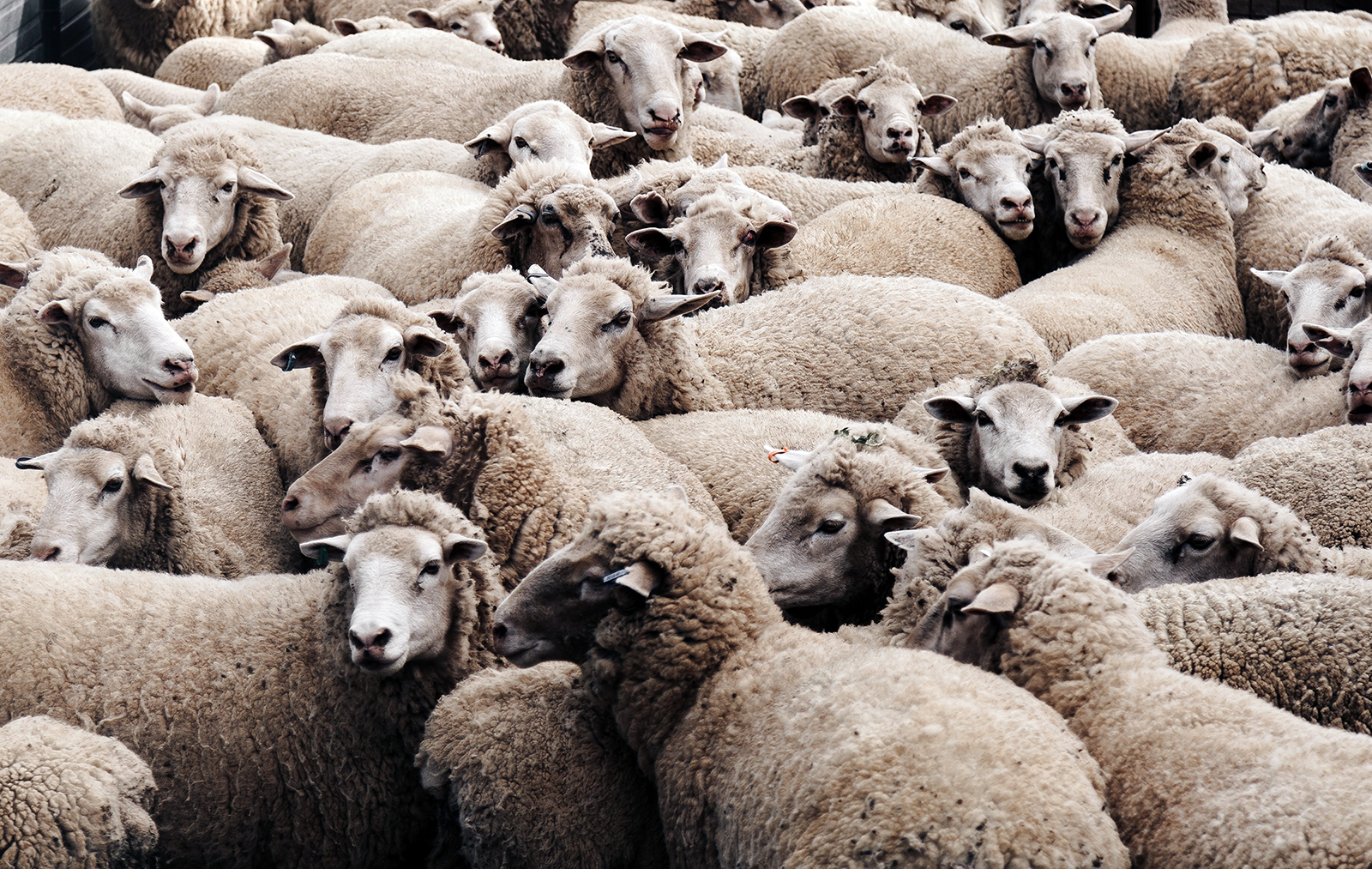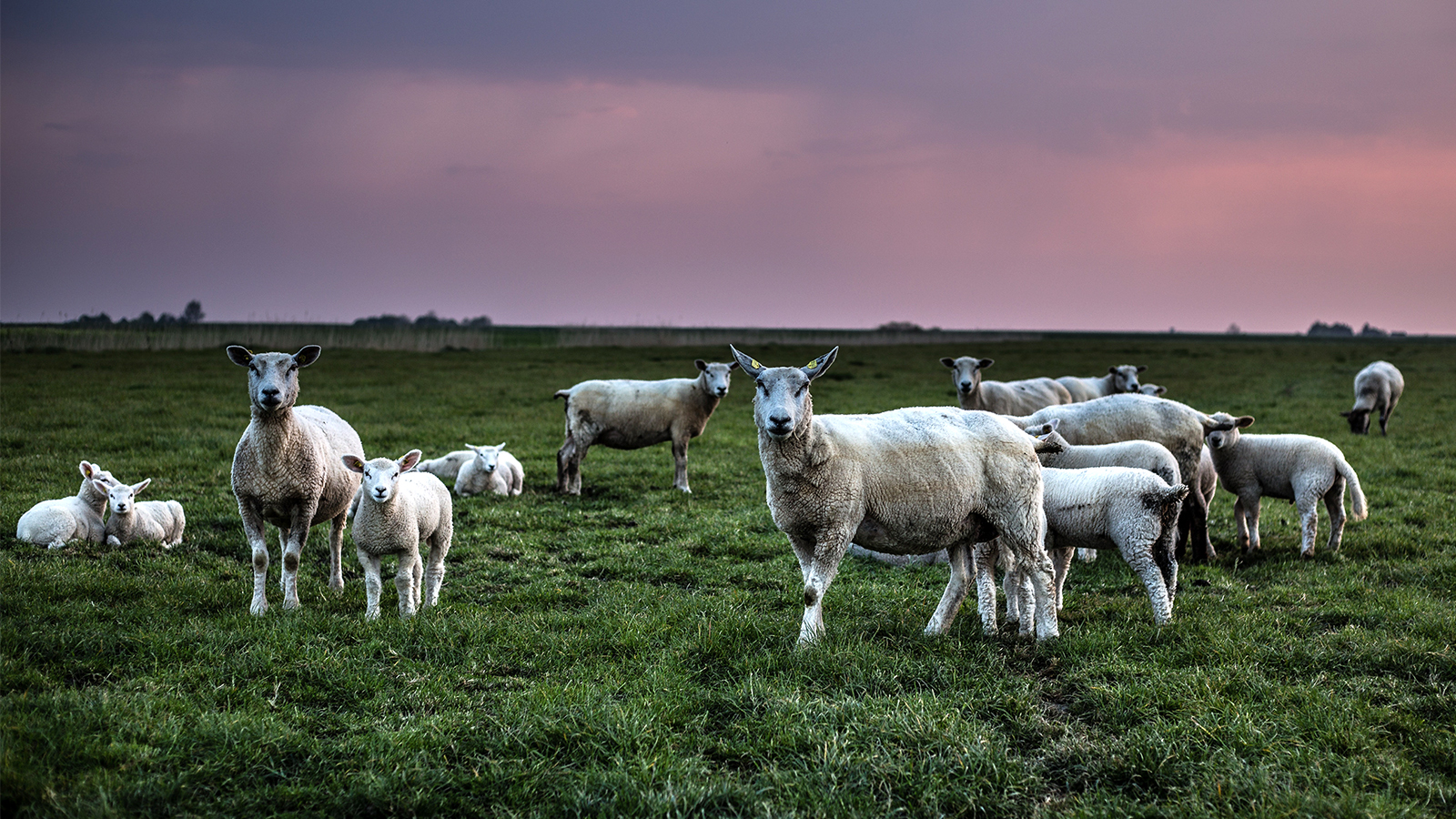Not all who harm the church are wolves. Some are renegade sheep.
(RNS) — The Bible issues clear warnings about wolves, those who prey on God’s sheep.
“Watch out for false prophets,” Jesus says in Matthew 7:15. “They come to you in sheep’s clothing, but inwardly they are ferocious wolves.”
However, like most things in these polarized times, even discourse around wolves has become overly vitriolic and hyperbolic. You don’t have to look far to see someone denouncing someone with whom they disagree as a “wolf in sheep’s clothing,” whether a popular Bible teacher, a celebrity pastor or just a neighbor sharing a meme on social media. Here a wolf, there a wolf, everywhere a wolf — or so some would have you believe.
Have those who so frequently hurl this accusation around forgotten Aesop’s tale of “The Boy Who Cried Wolf”? In this fable, a shepherd boy keeps tricking the townspeople into thinking a wolf is attacking their flock of sheep by falsely crying, “Wolf!” When a wolf does finally come and the boy cries out, no one believes him anymore, and the wolf gets the sheep.
But the truth is that not everyone who is wrong, in error, misled or makes a bad decision in the church is a wolf. Sometimes the ones who harm the flock are fellow sheep.
The Book of Ezekiel addresses this distinction in Chapter 34, which centers on his prophecy that a new shepherd for God’s flock will come. (That shepherd, Christians believe, is Jesus.)
First, Ezekiel rebukes the evil, unfaithful shepherds who feed themselves rather than the sheep:
“You eat the curds, clothe yourselves with the wool and slaughter the choice animals, but you do not take care of the flock. You have not strengthened the weak or healed the sick or bound up the injured. You have not brought back the strays or searched for the lost. You have ruled them harshly and brutally.” (Ezekiel 34:3-4)
Bible commentator David Guzik helpfully says of this passage:
“Leaders must make difficult choices and those choices will more than occasionally displease people. Ezekiel (or Jesus) never meant that faithful shepherds will please everyone. Yet it means that when difficult choices are made, they will be made and carried out with love and compassion. Godly shepherds will not lead with force, coercion, manipulation, threats, anger, or other forms of cruelty. This will be true of both their public leadership (such as with a congregation) and private leadership (such as with a staff or leadership team).”

Photo by Christopher Burns/Unsplash/Creative Commons
The imagery used throughout Scripture encourages us to recognize that those who lead the church are shepherds — but also that they, too, are sheep under the care and authority of the Shepherd. Thus, Ezekiel’s next words are for all the flock. Verses 17-22 prophesy that the Lord “will judge between one sheep and another,” between “the fat sheep and the lean sheep.”
We are often reminded that God will separate the sheep from the goats. But God judging sheep from sheep is a less familiar, startling image.
Like rams and goats, the fat sheep, Ezekiel says, feed on the good pasture, trample the field with their feet, drink the clear water then muddy it, leaving little or none for the other sheep. They “shove with flank and shoulder, butting all the weak sheep with [their] horns,” until the other sheep are driven away.
In discussing these “renegade sheep,” Guzik explains, “God recognized that all sheep are not the same, and He reserved the right to make such distinctions.” For the health of the church and all its members, we, too, must discern these distinctions as best as we can.
Some sheep are safe: nurturing, caring and giving. Some sheep are vulnerable: young, injured, unknowledgeable or aged. And some sheep — as any farmer can tell you — are bullies. They are the fat sheep. Fat sheep take from the other sheep. They use their membership in the flock to their advantage, enlarging themselves, whether in power, prestige, platform or riches.
The fact that there exist within the church body “fat sheep and lean sheep” complicates the easier narrative that all those who wound or harm us in the church are wolves.
Dealing with those in the fold who are doing harm even while doing good is hard. We worship together. We minister together. They may minister to us. We recite the same creeds. We attend the same conferences. We share the same friends — sometimes the same family.
Wolves are false teachers or false prophets. It can be easier to spot wolves, even those in sheep’s disguise, because they don’t look like us or live like us. Wolves are recognized by their bad fruit, Jesus says in Matthew 7:15. Other passages in Scripture indicate that wolves can be spotted when they deny who Christ is, teach a false gospel, reveal their bad character or lack the fruit of the spirit. We know how to deal with wolves — we must run them off or run from them.

Photo by Matthis Volquardsen/Pexels/Creative Commons
Renegade, bullying sheep aren’t wolves. But the harm they cause can be just as lethal — for both the individual sheep and the flock.
Renegade sheep betray the other sheep. Betrayal is such an egregious wrong that Dante placed those who committed this sin in the ninth circle of hell in “The Inferno.” Betrayal wounds like no other wound. Renegade sheep become fat not only by betraying the other sheep, but also through the pride that is ultimately self-worship, the kind that tries not only to save Jesus but to be Jesus, to be sheep who try to take the place of the shepherd.
Sheep usurp Christ, the shepherd, when they presume to restore what has not been repented of. Sheep usurp Christ, the shepherd, when they rationalize shortcuts, cover-ups and takedowns in order to hasten the Lord’s work. Sheep usurp Christ when they sacrifice the safety and well-being of some sheep for other sheep.
Renegade sheep muddy the waters.
But calling a sheep — even a renegade one — a “wolf” does, too.
This confusion is part of the great sifting the church seems to be undergoing now. Many are seeing churches, institutions, beliefs and relationships with new eyes. Yet, much of what we see during this sifting is still hazy, gray and unclear. We don’t know who is helping or who is hurting, and the truth is we all do both at times.
This is why it’s crucial for the health of the church — and all who are in it — that we distinguish between wolves and renegade sheep. Wolves need to be cast out but renegade sheep belong in the fold and they ought to be called back.
But first they need to know they have strayed.


